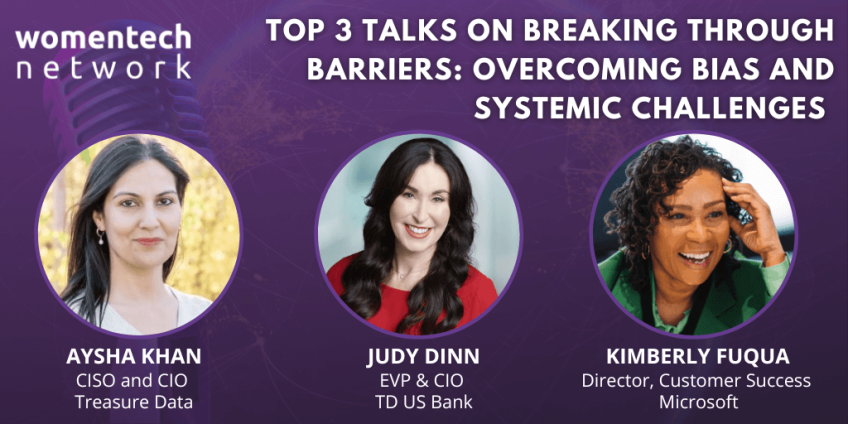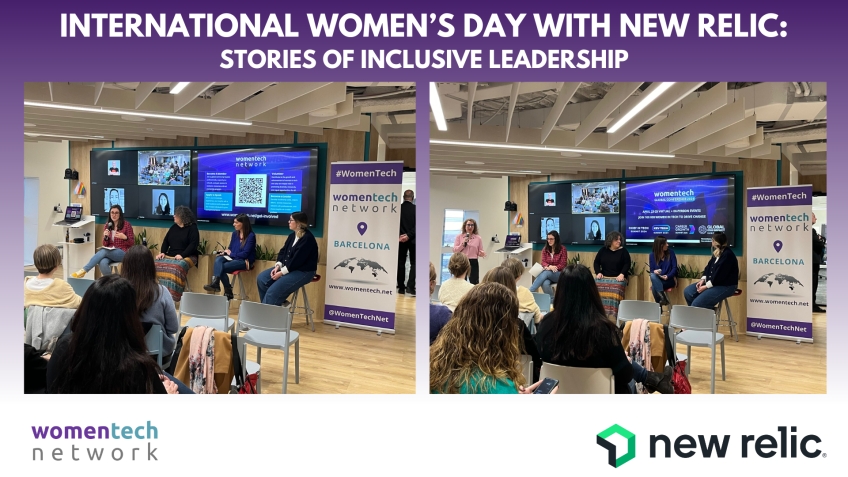How to build your own journey to succeed in tech by Yslen Gonzalez
Embarking on Your Tech Career: Insights from a DevOps Engineer's Journey
Building a career in tech can sometimes seem like a daunting task. Each journey is unique, marked by individual experiences and perspectives. Isle Gonzalez, a successful Cloud and DevOps Engineer at Improving Nurture, deconstructed her journey into tech, addressing challenges and accomplishments that shaped her professional growth. This article captures insights and key takeaways from her journey.
The Beginning: A Transition into Tech
As a Bionics Engineering undergraduate, Isle Gonzalez initially had little knowledge about what a career in Cloud and DevOps entailed, nor was her field directly related to it. However, her interest piqued when she encountered concepts of artificial intelligence (AI) during her time at the university. That's where her special interest in software began, leading her to join the women in AI Mexico community and taking up a six-month stint as a research assistant in the field of AI and biological signal processing.
Defining the Path
To start a career in tech, defining a path is crucial. A career in technology widens to diverse roles such as web development, product design, project management, app development, testing, data science, and more. To establish which role works best for you, engaging in sustained research is key. Once a path is defined, it’s important to join specific communities and find mentors who can guide you and help you take the next step in your career.
Joining Communities: Connecting Globally
Joining communities and attending as many workshops, webinars, events, and conferences as possible plays a key role in gathering industry knowledge, acquiring new skills, and updating yourself with emerging trends. Moreover, trying new things and embarking on new learning opportunities drastically improves your chances of getting noticed by potential employers.
Networking and Skills Enhancement
Networking, especially through professional platforms like LinkedIn and Twitter, can help you build connections beyond your immediate circle of acquaintances, providing opportunities for in-depth learning and potential career opportunities. Networking also brings surprising benefits - you'd be amazed at the potential of your connections. In Isle's case, a post on LinkedIn about her experiences with Quick Labs grabbed her present employer's attention, leading to her securing her current job.
The Challenges: Overcoming the Impostor Syndrome
Every journey introduces its set of challenges, and the tech journey is no different. Isle highlighted the impostor syndrome as one of the main challenges she faced. This is when an individual doubts their skills, talents, or accomplishments, constantly fearing exposure as a "fraud". Overcoming this challenge involves changing perspective - instead of undermining your achievements, celebrate them, no matter how small they are. Also, it’s essential to be okay with admitting you don’t know everything and to ask for help when needed.
Opening Up New Avenues: An Introduction to DevOps
DevOps, coined in 2009, combines the processes of development and operations. It focuses on enabling developers to focus on coding and optimizes the processes of software deployment. Continuous learning and upgradation of skills is key to becoming successful in the field of DevOps.
The Takeaway: Trust Yourself
In this tech journey, trusting yourself, being true to yourself, and believing in your capabilities are essential. It’s all about keeping learning and staying updated on industry trends. It's never too late to make a career transition and every step you take towards it, however small, contributes to your journey towards a rewarding career in tech.
Note: This blog article is based on the real journey of Isle Gonzalez, a Cloud and DevOps Engineer. The aim is to help aspiring tech professionals develop understanding about how to navigate their careers into technology.
Video Transcription
OK. So um hi, everyone. Um I will start right now because we only have 20 minutes in this session.So um building a career in tech is not always easy and that's why I would like to talk to you about how to build your own journey to succeed in this field. Um Before I start, I would want to highlight that every journey is different and everyone has their own experience and also their unique perspective. I want to share mine and hopefully it will help you to take um the next step in your career. So um also please feel free to add comments in the chat and your social media so we can do um networking. I will post mine just right now and you can do the same too. So first let me introduce myself. I am uh Isle Gonzalez. I am currently a Cloud and devops engineer at improving nurture. But before I got this job, I didn't really know what Cloud or devops was. So yeah, it was a really big challenge. Um My Bachelor's degree is in bionics engineering, which has more to do like with biological systems. So also my Bachelor's degree has almost nothing to do with this field.
But since university, I heard about A I for the first time with about artificial intelligence and I got interested in that field of software and that makes me uh join the women in A I Mexico community. And also I was for six months, a research assistant also in the area of A I and biological signals. And I just want to highlight also that a fundamental part of my professional career was joining two communities at my university. In my last year, it was the Google developers studying club and the women in engineering of the I Triple E. This allowed me to learn about more technologies and I learned a lot but how to start this journey. So uh first of all, we need to define a path in order to start a career in tech. In my case, I choose um artificial intelligence as I told you, but a career in technology is a career without boundaries. There are um there is web development, product design, project management, um app development testing, um data science and many more. So the range of job roles and opportunities is very, very huge and this is a very broad field. So this means that there are different areas that require certain certain skills. And in order to discover the right role for yourself, you need to first uh do uh do some research.
So that way uh you can find which um which path fits you the best or which one sounds more interesting for you. So once you have to find your path uh that you want to follow, then you um need to find a mentor and join communities. Why is that? Because we need support. Uh They can provide us with some guidance, they can tell us which uh step to take next in our career and the communities can be local and global. It's up to you and I assure you that there are many communities out there and people open to help others. So this is a very important key point in in our path. Next, I really recommend you to attend all the workshops, webinars events and conferences. You can um this will help you to see how everything works in the industry to acquire new skills, both soft skills and her skills and also enhance the skills as you already have. And one important thing in here is that also you can keep updated with the topics. So events like this one helps you a lot in in your career path. Um I want to highlight that my first approach with, with cloud, which is right now my role uh it was with some quick collapse that I found um uh for free and I developed like A I solutions in in the cloud.
And this helped me and was the thing that um caught the attention of the my current boss when he gave me the job and, uh, getting certifications or badges of things that you have learned are approved that, you know about this technology or tool and, um, also are approved that you are interested in these kind of topics and, well, it never hurts to, to learn something new.
Mm. This particular step is not all, it's not, it's not only when you're starting your career but also when you are already in here, um technology changes uh continuously. So you have to keep getting updated, keep learning, just don't stop and don't forget that your professional growth is very important too. Um I want to highlight also that English is a must I know that if you are here, it's probably because, you know, um well, you understand English and you uh talk English but for people whose mother tongue is not English like me, I'm Mexican. Um knowing English will get you a better job. And also you can have access to more information and communicate better with other people. And last, but not least networking. Um Networking is really very important. Uh Social network is uh professionally linkedin and Twitter are the most used uh social media. Um Allow you to connect with more people outside of your current friends or acquaintances and you can get involved with the community and even learn new things. I have learned a lot um with the social media channels like um well, obviously youtube uh Twitter and linkedin are like the main fields. And also uh you may be surprised of how powerful your connections can be.
Uh reach out to anybody who's associated with this tech world and connect with the people that they know too. So you start connecting with one person and then you end up with a larger network. So simply putting a post on social media may bring you out an opportunity that you never expected. And this is a true story. I post about this quick labs that I did in linkedin. And that's the way I got my first job and that's why I'm here right now. So yeah, you should take advantage of every opportunity and every tool that exists right now in, in this world. So also keep in mind to build a truly inclusive network. Obviously, you need to connect with people with the same interest as you, but also we need different perspectives. So mm all the teams are interdisciplinary. We need everyone and it is important to know different point of view. It allows us to about bias and also help us to better analyze problems. So, um obviously, um our journeys are not always uh beautiful and uh everything is OK. Every journey has its ups and downs. So I want, I just want to um highlight some obstacles that I have overcome and like the principal obstacles that you may have when building your career path. And the first of them is the imposter syndrome in case you don't know what is what it is.
It is a psychological occurrence in which an individual doubts their skills, talents or accomplishments. And we have this constant fear of being exposed as a fraud. So here in the image, we can see like the uh imposter syndrome cycle, um we have a new project, we get anxiety and then after completing it, we start thinking that we were just lucky that we are not good enough that um it will have been anybody that somebody will have done a better job and we increase our debts.
Uh We increase our feeling of not being good enough and we start comparing ourselves with, with others. Another constant fear I had, it was the fear of changing my career path. As I told you, I come from uh bionics engineering and I changed my career path to devops. So I have this constant fear of not knowing if I was going to be able to do that. And also uh as a woman in tech, I'm used to be the only woman in the group or team um also in my university and not seeing people like me constantly made me wonder if I was in the right place, if I could do what I was doing if this, this was a place for me. So yeah, it was like uh some thoughts that I had and that made me made my path a little. Um Not so easy. But how did I overcome some obstacles and how can you do it too? Uh First of all, we need to start seeing things differently instead of um well, we have to ask ourselves if the negative thoughts we have are from facts or it is a story that we are telling ourselves. So instead of thinking, I don't deserve to be here, we can start thinking that I am like we are here because we earn it. Also celebrate every success, every little step in our career counts.
Often we are not confident or we underestimate our skills, but we need to keep track of our achievements, highlight them and share them. So we can know how well are we doing and celebrate that we are having a progress in in this path, no matter how big or or small is our change, ask for help. Um be ok with not knowing with asking someone if you don't understand something. Mm And also be ok with spending a lot of personal time learning and refining your skills. It's ok. Everyone does that and develop your skills continuously. No matter what your background is. Um With the rapid evolution of it, there is a huge amount of people from diverse backgrounds and also unique perspectives. So having a bachelor degree or an previous experience in something that may be not related to tech will bring a different perspective to the team. So I can assure you too that there are many people in, in in software and technology and science who come from different backgrounds. I have seen lawyers, physicists, business graduates and many more. So, yeah, everything is possible if we uh if we want to and uh finally uh join communities until I started joining this kind of communities of women.
I found out that yes, there are women in tech, there are women in science and that we can make the difference as uh the image says, uh representation matters. So just don't be afraid to try. Um You will never know if you, if you never try and join these communities that we help you to uh boost your career and also to take some advice and see that other women are doing something great. Just as a curious fact, uh this event, the Women Tech Global Conferences. Um but from two years ago, made me decide to pursue a career in tech and confirm me that it is a place for women. So that's why I'm here right now in, in software. And well, I just have to, I just need to uh highlight this. Um This is uh only like a part of my story of how I became a de ops engineer. But in case you're wondering what the type of is, let me explain it really quick. Um DeVos it was first called like a as a concept in 2009. Uh It is a combination of development and operations. It is a culture uh born due to the need to innovate software development. So mm the idea is to make developers focus on doing what they do best, which is called and also optimize the process of putting software into production, which is like the area of operations and stop blaming others.
Because as you can see in, in this um in this slide, um console developers used to blame the operations teams when their code is not working in production and operations blame their code instead of the machine they are uh deploying. So uh devops just is like a culture of a set of tools that will um make this process easier. Um Des include a lot of steps in this cycle. As we can see in this image, there is the plan, the build the continuous integration of the code deployment to production the operation of it uh monitoring and having this continuous feedback uh of the clients or the end user. And we can plan again um the software process and how we can improve the the application, for example. So it includes a set of continuous processes. Uh We optimize the development, the test, the deployment, the bug fixes the transition of the code to production and the monitoring.
So as you can see, there are a lot of tools if you are interested in DeVos, I recommend you to start learning to use just one tool of each step because um mostly um uh some tools um work like the same has the same idea. It's just like different names are different configuration. But the idea um basics of it are the same. Uh How do I start? I obviously started like with the basics in case you are interested, I started knowing some Linux comments and how to um move in the term in the terminal. Then with uh how does GIT works? And this is a sort of like for source control versions. Um cloud, it is important to know at least of one cloud environment you can choose um from AWS A GCP. Uh I also with the basics of Docker containers just like the playing in the Docker files and uh uh very simple containers, obviously infrastructure as code with terraform or cloud formation and the basics of C I CD, uh which is Jenkins and code pipelines. These six things are the first thing I learned when I entered this devops world. And obviously, I have learned a lot um since that start like a year ago. But um in case you also want to know what does a EBS engineer do.
Um We are the ones who manage the C I CD processes which is the continuous integration, continuous deployment. Uh We write some specifications and documentation for server site functions. We also supervise projects. Um We manage all the infrastructure. Um We handle the cloud deployments and obviously we ensure that the des culture is properly adopted. And well, in case you uh need more information, this is a quick introduction. So you can send me a message if you have any doubt of de s but it's like a quick intro if you want to know more about this. And um we're almost um done with, with the time. So I just want to remind you to trust yourself, be true to yourself in this process of having a career inte. And uh just to remind you, you can reach me on social media. If you have any doubts, questions want to network, you need some guidance or whatever you need. I'm free to help you. Um I love to do it. So please just send me a message. You can also um write some comments right now in the chat if you, if you want to. And yeah, and uh I think that's all. So thank you and you have some comments or questions I can answer you to um right now. Yeah.
Thank you all for being here also. Yes, I mean Dev ops is a very um new field. It's a new concept. So there are a lot of um of work in it. You're always learning and it's kind of fun to always keeping updated with the new tools that are um yeah, that are um uh born and also you're always automating things and making the process of the deployment of software uh easier for everyone. So I mean, I I love my job and it's a very good opportunity if you want to know about any other um opportunities in tech, it's not always coding and just like a developer, there are many other fields in software so you can research about this and start your career in that. Uh One of my data, data are uh deploying infrastructure, automating the pipelines. Like when someone, some developer does uh a change in the code then uh like automate all the steps to deploy that into the environments, our dev uh testing or production environments. Um I also always monitoring all the services we have. We are automating processes for example, a building containers to automate the testing. For example or um if someone needs a new service, then I build like the Docker container, we package every so it is easier and that's only like code and that's it.
And I have everything automated to make the deployment of, of that code they develop into our testing uh environment or production and we can have it better and optimized. Mm How much coding do I do? Um It's not so much coding. I mean, I sometimes I need to understand and do a scripting because for shell scripts or uh Docker files, we need some like comments but it is more like scripting and also it's like like programming, we use more like YAML or JSON files. So yeah, it's not so much coding you need sometimes to understand the code that you are seeing but not, not like programming since um since the beginning. Oh, and, and thank you for your comments. Yeah, feel free to connect with me and I can help you if you have some doubts, I can share with you some um some um some tools that we help you in, in DEV ops if you're interested in that. And also if you're interested in another fields of software, I'm happy to help you too. And yeah, no matter how uh what is your background and your knowledge, just keep learning and you will can change your career path any time you want. It's only like you uh keep trusting in yourself and keep learning and always keep updated with what's going on right now. So, yeah, thank you a lot. Yeah, thank you. So, um I think we have uh finished this session. So thank you for joining.
Um feel free to connect and well, thanks for this opportunity. This was my first time in a global event and also with a presentation in English. So, uh thank you so much for being here and yeah, have a nice day.





